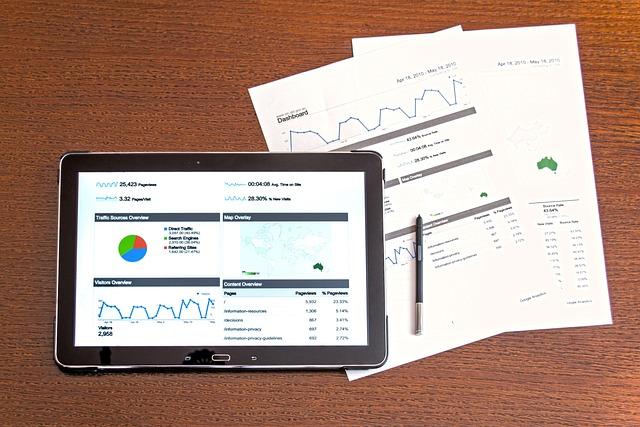The African Development Bank (AfDB) has announced a significant financial support package of $78 million to Morocco’s Bank of Africa, aimed at bolstering trade across the continent. This investment underscores the AfDB’s commitment to fostering economic growth and trade integration within Africa, providing essential resources to enhance the financial capabilities of one of Morocco’s leading banking institutions. The funding is expected to empower the Bank of Africa in facilitating trade financing solutions, thereby promoting business expansion and international partnerships. As African economies increasingly seek to enhance intra-continental trade, this strategic initiative highlights the pivotal role that financial institutions play in driving economic development and regional cooperation.
AfDB’s Financial Commitment to Bolster African Trade through Morocco’s Bank of Africa
The African Development Bank (AfDB) has made a significant move to enhance trade across the continent by committing $78 million to Morocco’s Bank of Africa. This financial support aims to strengthen the operational capacity of the bank, enabling it to provide much-needed trade financing for various enterprises. The initiative is expected to foster economic growth and bolster the region’s trade dynamics by ensuring that businesses, particularly small and medium-sized enterprises, have access to essential financing options. The goal is to facilitate cross-border trade, which is crucial for the integration of African economies.
This commitment aligns with the AfDB’s strategic objectives to promote economic integration and lasting development in Africa. The funding will be channelled through the following key areas:
- Trade Finance Facilities: Expanding products and services for import-export operations.
- Technical Assistance: Providing support for capacity building and advisory services.
- Risk Mitigation: Developing solutions to minimize trade-related risks for businesses.
Through this collaboration, the AfDB and Bank of Africa aim to create an enabling environment for trade by enhancing liquidity in the market and driving innovation in financing solutions. With increasing intra-African trade potential, this partnership exemplifies a strategic effort to uplift the continent’s economic landscape.
Understanding the Impact of a $78 Million Investment on Trade Dynamics in Africa
The recent infusion of $78 million from the African development Bank (AfDB) into Morocco’s Bank of Africa represents a pivotal movement in enhancing trade dynamics across the continent. This significant investment aims to bolster financial support for small and medium-sized enterprises (SMEs), which are essential for promoting economic growth and job creation in Africa. Key areas of impact include:
- Increased Access to Financing: SMEs will benefit from improved access to credit and other financial products, enabling them to expand operations and increase productivity.
- Trade Facilitation: The funding is expected to streamline operations, facilitating smoother cross-border trade transactions.
- Strengthening Regional Integration: By empowering local businesses, this investment will enhance intra-African trade, fostering economic ties and collaboration across nations.
Furthermore, this strategic partnership is poised to address critical challenges that hinder trade in Africa, such as inadequate infrastructure and limited market access. The AfDB’s investment not only signals confidence in Morocco’s financial institutions but also demonstrates a commitment to fostering a more connected and resilient economic landscape across the continent. A glimpse into the expected benefits of the investment can be illustrated as follows:
| benefit | Description |
|---|---|
| Enhanced Trade Opportunities | Opening up new markets for SMEs to export goods and services. |
| Job Creation | Generating employment opportunities through expanded business activities. |
| Economic Diversification | Encouraging SMEs to innovate and diversify their product offerings. |

Exploring the Strategic Role of Moroccan Financial Institutions in Regional Trade Growth
The African development Bank (AfDB) has recently taken a significant step towards enhancing regional trade by offering a considerable financial package of $78 million to Morocco’s Bank of Africa. This funding is poised to strengthen the bank‚Äôs capability to facilitate trade transactions across various African nations, thereby boosting economic ties within the continent. By leveraging this financial support, Bank of Africa aims to provide enhanced financing solutions, aimed specifically at small and medium-sized enterprises (SMEs), which are the backbone of regional economies. The strategic role that such financial institutions play in fostering trade can be highlighted by their ability to:
- Provide access to credit: Enabling businesses to expand their operations and engage in cross-border trade.
- Offer trade finance solutions: Assisting firms in managing risks associated with international trading.
- Promote investment: Attracting foreign direct investment to the region by demonstrating the viability of businesses.
In the face of growing economic interdependence among African nations, the collaboration between institutions like AfDB and Bank of Africa exemplifies a critical pathway towards achieving sustainable trade growth. As these financial bodies equip local businesses with the necessary tools, we may witness a landscape where African products gain greater access to international markets, fostering economic resilience. To further illustrate this impact, the following table outlines key initiatives supported by the AfDB investment:
| Initiative | Description | Expected Outcome |
|---|---|---|
| SME Financing | Access to credit for small businesses | Increased business expansion |
| Trade Risk Mitigation | Financial products to safeguard trade | reduced cross-border trading risks |
| Capacity Building | Training for local traders | Enhanced trading skills and knowledge |

Recommendations for effective Utilization of AfDB Funds to Enhance Trade Infrastructure
To maximize the impact of the $78 million investment from the African Development Bank (AfDB), it is crucial for Morocco’s bank of Africa to implement a strategic framework focused on trade infrastructure enhancement. The funds should be directed towards projects that streamline logistical processes and improve connectivity across key trade routes.By prioritizing public-private partnerships, the bank can leverage additional resources and expertise for more effective infrastructure development. Key actions could include:
- Investing in digital platforms that facilitate trade transactions and provide data analytics for decision-making.
- Upgrading existing transport networks to reduce bottlenecks and ensure efficient movement of goods.
- Enhancing port facilities to accommodate larger vessels, thereby facilitating international trade.
Furthermore, fostering collaboration among African nations will be essential to create a cohesive trade network. A focus on regional frameworks can help improve the synergy between various national policies and regulations.This could involve establishing trade facilitation committees composed of key stakeholders from both public sectors and businesses. Proposed initiatives should include:
- Standardization of customs procedures to streamline cross-border trade.
- Joint training programs for stakeholders to enhance skills in managing complex trade operations.
- Creation of a shared trade intelligence database to monitor trends and emerging markets.
| Key Initiative | Expected Outcome |
|---|---|
| Digital Trade platforms | Improved transaction efficiency |
| Transport Network upgrades | Reduced logistical costs |
| Regional Trade Committees | Enhanced policy alignment |
Assessing the Long-term Benefits of strengthening African trade Networks through Investment
The recent intervention by the African Development Bank (AfDB) to support Morocco’s Bank of Africa with a significant investment of $78 million marks a crucial step towards enhancing intra-africa trade. This financial backing is expected to not only bolster the operational capacity of moroccan businesses but also facilitate increased trade flows across the continent. By strengthening local financial institutions, the AfDB aims to create a ripple effect that will empower small and medium-sized enterprises (SMEs), which are vital for economic growth and job creation in african countries. The investment will enhance trade finance, allowing businesses to access necessary funding to engage in cross-border transactions more effectively.
As African nations become more interconnected through such investments,several long-term benefits can be anticipated:
- Increased Economic Resilience: Strengthening trade networks will enhance economic diversification and reduce dependency on external markets.
- Job Creation: Improved trade prospects can result in more employment opportunities across various sectors.
- Technology Transfer: Enhanced partnerships can lead to the exchange of skills and technological expertise between nations.
- Regional Integration: Improved trade relations will foster regional cooperation and collaborative economic strategies.
To gauge the potential outcomes of such investments, a comparison of trade volumes and economic performance indicators before and after major financial injects could be insightful:
| Year | Trade Volume (in million USD) | GDP Growth (%) |
|---|---|---|
| 2019 | 1500 | 3.5 |
| 2020 | 1600 | 2.1 |
| 2021 | 1800 | 5.0 |
| 2022 | 2000 | 4.5 |
This table illustrates a positive trend in trade volume and GDP growth in the years following critical investments in trade networks, aligning with the AfDB’s strategy to cultivate economic synergy throughout Africa.

Future Prospects for Collaboration between AfDB and Regional Banks in Promoting Trade
The collaboration between the African Development Bank (AfDB) and regional banks is set to evolve considerably in the years to come, driven by the pressing need to enhance intra-African trade. As showcased by AfDB’s recent financial support of $78 million to morocco’s Bank of Africa, this partnership is fundamentally aimed at unlocking greater economic potential across the continent. Such investments are not just monetary; they are pivotal in strengthening the capacity of regional banks to facilitate trade financing, ultimately fostering a more interconnected African economy.
future prospects for this collaboration involve a multi-faceted approach, including:
- Joint Trade Initiatives: developing programs that encourage cross-border trade between member countries.
- Capacity Building: Offering training and resources to regional banks to improve their trade financing capabilities.
- Technological Investment: Implementing advanced financial technologies to streamline processes and enhance accessibility for small and medium-sized enterprises (SMEs).
- Policy Advocacy: Working together to influence regulatory environments favorable to trade expansion.
To facilitate these collaborative efforts, a strategic focus on key trade areas is essential. the following table outlines potential priority sectors for future collaboration:
| Sector | potential Growth (%) | Investment Opportunities |
|---|---|---|
| Agriculture | 30% | Agri-tech solutions |
| Textiles | 25% | Supply chain development |
| Renewable Energy | 40% | infrastructure projects |
| Tourism | 20% | Marketing and partnerships |
Concluding Remarks
the african Development Bank’s recent decision to extend a $78 million financing package to Morocco’s Bank of Africa underscores a growing commitment to enhancing trade and economic collaboration across the continent. This strategic investment aims to bolster regional trade initiatives, enabling businesses to access vital resources and expand their operations. As African economies continue to navigate the complexities of global markets, support from institutions like AfDB plays a crucial role in fostering sustainable development and economic resilience. the outcomes of this partnership will be closely watched, as they could serve as a model for future collaborative efforts in enhancing intra-African trade and investment opportunities.







